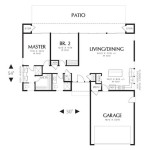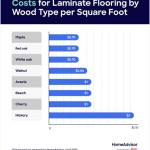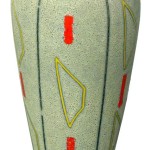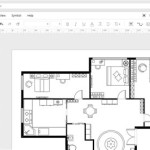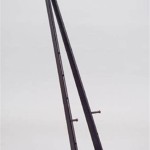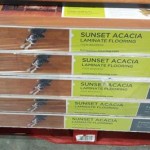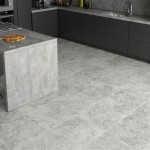Exploring Eucalyptus Flooring: Weighing the Pros and Cons
Eucalyptus flooring has emerged as a popular choice for homeowners and builders seeking a sustainable and aesthetically pleasing alternative to traditional hardwood options. Derived from the fast-growing eucalyptus tree, this flooring material offers a range of benefits, but it also presents certain drawbacks that prospective buyers should carefully consider. This article provides a comprehensive overview of the pros and cons of eucalyptus flooring, enabling informed decision-making.
The Advantages of Eucalyptus Flooring
Eucalyptus flooring boasts several advantages, primarily centered around its sustainability, durability, and aesthetic appeal. These factors contribute to its growing popularity in the flooring market.
Sustainability: One of the most compelling arguments in favor of eucalyptus flooring is its sustainability. Eucalyptus trees are renowned for their rapid growth rate, reaching maturity much faster than traditional hardwood species like oak or maple. This rapid growth allows for quicker replenishment of harvested trees, reducing the pressure on old-growth forests and promoting responsible forestry practices. Furthermore, eucalyptus plantations are often managed in a way that minimizes environmental impact, utilizing sustainable harvesting techniques and reducing the need for harmful pesticides and fertilizers. Certification by organizations like the Forest Stewardship Council (FSC) provides assurance that the eucalyptus is sourced from responsibly managed forests.
Durability and Hardness: Eucalyptus flooring, particularly strand-woven eucalyptus, is known for its exceptional hardness and durability. The Janka hardness scale, a standard measure of wood's resistance to denting and wear, often ranks strand-woven eucalyptus significantly higher than many traditional hardwoods. This makes it a suitable option for high-traffic areas of the home, such as living rooms, hallways, and kitchens, where the flooring is subjected to considerable wear and tear. The dense composition of strand-woven eucalyptus makes it less susceptible to scratches, dents, and other forms of damage, prolonging its lifespan and reducing the need for frequent repairs or replacements.
Aesthetic Appeal: Eucalyptus flooring offers a unique and visually appealing aesthetic that can complement a variety of interior design styles. The grain patterns of eucalyptus wood are often characterized by a distinctive swirl or curl, providing a visually interesting texture that adds character to a room. Eucalyptus flooring is available in a range of colors, from light blondes to rich browns, allowing homeowners to choose a shade that complements their existing décor. The smooth, consistent surface of eucalyptus flooring creates a clean and modern look, while its natural warmth adds a touch of rustic charm.
Cost-Effectiveness: In many cases, eucalyptus flooring is more affordable than traditional hardwood flooring options like oak, maple, or cherry. This cost-effectiveness is primarily due to the rapid growth rate of eucalyptus trees and the efficient harvesting and manufacturing processes. The lower cost of eucalyptus flooring can make it an attractive option for homeowners looking to achieve the look and feel of hardwood without breaking the bank. However, it’s important to note that prices can vary depending on the specific type of eucalyptus, the manufacturer, and the retailer.
Dimensional Stability: Eucalyptus, when properly processed, can exhibit good dimensional stability, meaning it is less prone to warping, cupping, or cracking due to changes in humidity and temperature. This is particularly important in regions with significant seasonal variations in climate. However, it’s crucial to ensure that the eucalyptus flooring has been properly kiln-dried and acclimated to the home's environment before installation to minimize the risk of dimensional instability.
Resistance to Insects and Decay: Some species of eucalyptus naturally contain oils and compounds that make them resistant to insects and decay. This inherent resistance reduces the need for chemical treatments, making eucalyptus flooring a more environmentally friendly option. However, it is still recommended to take precautions to protect the flooring from moisture damage, as excessive moisture can create conditions that promote decay.
The Disadvantages of Eucalyptus Flooring
Despite its numerous advantages, eucalyptus flooring also presents certain disadvantages that should be carefully considered before making a purchase. These drawbacks primarily concern moisture sensitivity, potential for inconsistencies, and environmental considerations.
Moisture Sensitivity: Like all wood flooring products, eucalyptus flooring is susceptible to moisture damage. Excessive moisture can cause the wood to swell, warp, or cup, leading to unsightly blemishes and compromising the structural integrity of the floor. It is crucial to maintain a consistent humidity level in the home and to promptly address any leaks or spills. Eucalyptus flooring is generally not recommended for installation in bathrooms, laundry rooms, or other areas that are prone to high humidity levels. Proper sealing and finishing can help to protect the flooring from moisture damage, but it is still essential to exercise caution and take preventive measures.
Potential for Inconsistencies: The quality of eucalyptus flooring can vary depending on the species of eucalyptus used, the manufacturing process, and the quality control measures implemented by the manufacturer. Some eucalyptus flooring products may exhibit inconsistencies in color, grain, and hardness. It is important to carefully inspect the flooring before purchasing it and to choose a reputable supplier that offers high-quality products. Solid eucalyptus flooring can be more prone to inconsistencies compared to engineered versions due to the natural variations within the wood itself.
Environmental Considerations (Beyond Sustainability): While eucalyptus is generally considered a sustainable material, some environmental concerns remain. Eucalyptus plantations can sometimes displace native vegetation and disrupt local ecosystems. In some regions, eucalyptus trees can also deplete water resources, particularly in areas with limited rainfall. It is important to choose eucalyptus flooring that is sourced from responsibly managed plantations that minimize environmental impact and support biodiversity.
Formaldehyde Emissions: Some eucalyptus flooring products, particularly engineered versions, may contain formaldehyde, a volatile organic compound (VOC) that can off-gas into the air and pose health risks. It is important to choose eucalyptus flooring that is certified as low-VOC or formaldehyde-free to minimize exposure to this harmful chemical. Look for certifications from organizations like the California Air Resources Board (CARB) or the U.S. Environmental Protection Agency (EPA) to ensure that the flooring meets stringent emission standards.
Installation Complexity: While eucalyptus flooring can be installed by experienced DIYers, it is generally recommended to hire a professional installer. The installation process can be complex and requires specialized tools and techniques. Improper installation can lead to problems such as cupping, warping, or gapping, which can compromise the appearance and performance of the flooring. A professional installer will have the knowledge and expertise to ensure that the flooring is properly installed and that any potential issues are addressed. Additionally, proper subfloor preparation is crucial for a successful installation, and a professional can assess the subfloor and make any necessary repairs or modifications.
Refinishing Limitations: Solid eucalyptus flooring can be refinished multiple times, allowing homeowners to restore the flooring to its original beauty or to change the color or finish. However, engineered eucalyptus flooring typically has a thinner veneer layer, which limits the number of times it can be refinished. It is important to consider the refinishing limitations when choosing between solid and engineered eucalyptus flooring. If you anticipate needing to refinish the flooring in the future, solid eucalyptus flooring may be the better option.
Key Considerations Before Choosing Eucalyptus Flooring
Before making a decision about purchasing eucalyptus flooring, potential buyers should carefully consider several key factors to ensure that it is the right choice for their needs and circumstances.
Evaluate the Home's Environment: Assess the humidity levels in the home, particularly in the rooms where the flooring will be installed. If the home is located in a humid climate or if the rooms are prone to moisture, consider choosing a more moisture-resistant flooring option or taking steps to improve ventilation and humidity control. Ensure that the subfloor is properly prepared and that any necessary repairs or modifications are made before installation.
Research Different Eucalyptus Species and Manufacturing Processes: Not all eucalyptus flooring is created equal. Research different species of eucalyptus and the manufacturing processes used to produce the flooring. Strand-woven eucalyptus is generally considered the most durable and moisture-resistant option, but other types of eucalyptus flooring may be more affordable or aesthetically pleasing. Choose a reputable supplier that offers high-quality products and that provides detailed information about the species and manufacturing processes used.
Consider the Long-Term Costs: While eucalyptus flooring may be more affordable than traditional hardwood flooring options in the short term, consider the long-term costs of maintenance, repairs, and potential replacements. Factor in the cost of professional installation, as well as the cost of cleaning products and maintenance supplies. Also, consider the potential for future repairs or replacements due to moisture damage or wear and tear. A durable and well-maintained eucalyptus floor can last for many years, but it is important to be prepared for potential costs down the road.
Assess the Environmental Impact: While eucalyptus is generally considered a sustainable material, it is important to assess the environmental impact of the specific eucalyptus flooring product you are considering. Look for certifications from organizations like the Forest Stewardship Council (FSC) to ensure that the eucalyptus is sourced from responsibly managed forests. Consider the transportation distance from the plantation to the manufacturing facility and to your home, as longer distances can increase the carbon footprint of the flooring. Choose a product that is manufactured using environmentally friendly processes and that minimizes waste.
Compare Prices and Warranties: Obtain quotes from multiple suppliers and compare prices to ensure that you are getting the best value for your money. Read the warranty carefully and understand the terms and conditions before making a purchase. A good warranty will protect you against defects in materials and workmanship and will provide recourse in the event of problems with the flooring.
Ultimately, the decision of whether or not to choose eucalyptus flooring depends on individual needs, preferences, and circumstances. By carefully weighing the pros and cons and considering the key factors outlined in this article, prospective buyers can make an informed decision that will result in a beautiful and long-lasting flooring solution.

Jacqueline Moenck On Linkedin The Pros And Cons Of Eucalyptus Flooring

The Benefits Of Eucalyptus Flooring Hgtv

Hand Scraped Amaretto Eucalyptus Flooring Hardwood Bargains Www Hardwoodbargains Com 575 Html

Pros And Cons Of Bamboo Flooring Hgtv

Hand Scraped Amaretto Eucalyptus Flooring Hardwood Bargains Www Hardwoodbargains Com 575 Html

Pros And Cons Of Engineered Timber Flooring Imagine Floors

Lyptus Flooring Mocha Wide Click Lock Youtube

Sustainable Flooring Options For An Eco Friendly Home Renovation Photo Remodeling Analysis

Hybrid Flooring Pros And Cons You Need To Know Making Home

Engineered Bamboo Flooring Pros And Cons Best Brands Flooringstores
